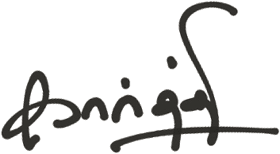Jun 3, 2025
On Taste. And Why It’s So Rare.
Taste is not an accident.
It is a finely crafted judgment system - a synthesis of exposure, curiosity, reflection, and relentless refinement. That’s why so few truly have it. Because building taste takes time, humility, and an unreasonable commitment to excellence.
People with high taste have a high bar.
They don’t settle for mediocrity - not in themselves, and not in what they co-create. They are hard to please, often seen as difficult, sometimes feared by teams that are low on competence or care. But put them with high-agency, high-skill collaborators - and magic happens. They are catalysts. Taste amplifies.
But taste isn’t born in isolation.
It comes from wide exposure - books, products, architecture, visuals, craft, conversations. Exposure feeds learning. Learning requires openness. Openness flows from a beginner’s mind, which is only possible when curiosity is alive. See the thread? Taste is not a skill. It’s a system.
And yet, it is not without shadow.
Taste, without self-awareness, becomes ego.
It creates brilliant jerks - people who have taste but lack the emotional grace to bring others along. They see flaws but not the fragility of the human behind the work. There is a fine line between being discerning and being destructive.
Cognitive taste is resonance.
We’re drawn to certain things - minimalism, boldness, texture, rhythm. That resonance shapes our identity. But if we are not careful, it becomes a bias. I love simplicity. A well-designed diagram that explains complexity with clarity wins my heart. But I know that’s my aesthetic preference, not the only path to insight. That self-awareness helps me work with visual designers who thrive in intricate storytelling.
So, how does one build taste?
• Expose yourself widely.
See the world. See more of it. From brutalist buildings to baroque painting. From Apple’s UI to a Japanese tea ceremony.
• Track what resonates.
Note what stirs something in you. That’s your internal compass. But don’t make it your cage.
• Stay curious.
Ask. Listen. Look again. Taste without curiosity becomes arrogance.
• Build a high bar for yourself.
I push myself to 95%. But I stop at 60% when working with others. My math is unfair, by design. Because empathy matters.
• Be respectful.
Curiosity without respect becomes condescension. Listening is the antidote.
Taste is powerful.
It makes your work sharper. Your decisions tighter. Your impact deeper. It is a multiplier of efficacy. Our products don’t suffer from lack of talent or budget. They suffer from a lack of taste.
You can’t hire taste.
You can’t buy it.
You have to build it.
And that’s why taste in your culture matters.
Because in the end—
Taste is not about liking nice things. It’s about knowing what matters and insisting it shows.

